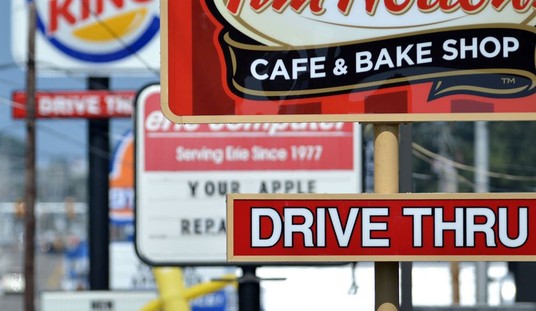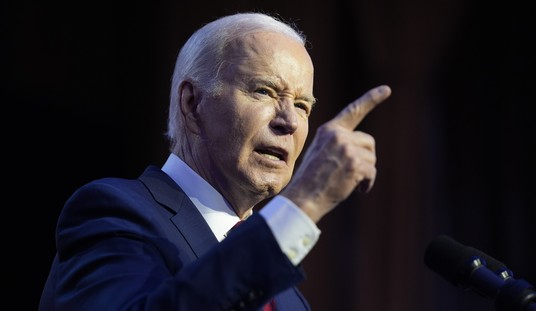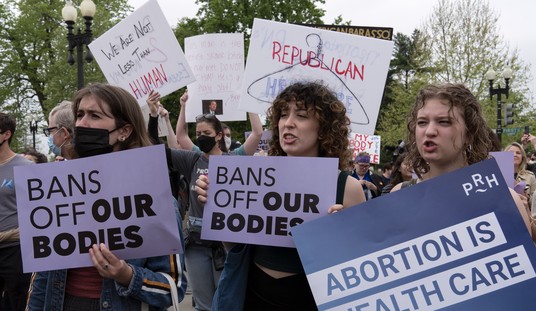Download Podcast | iTunes | Podcast Feed
On today’s edition of Coffee and Markets, Ben Domenech is joined by John Garen a professor in economics at the University of Kentucky and adjunct scholar at the Bluegrass Institute to discuss what lessons can be learned from the state of Kentucky where one in five people are enrolled in Medicaid as costs skyrocket and quality of care plummets.
We’re brought to you as always by BigGovernment and Stephen Clouse and Associates. If you’d like to email us, you can do so at coffee[at]newledger.com. We hope you enjoy the show.
Related Links:
An Unsustainable Path: The Past and Future of Kentucky Medicaid Spending”
More Medicaid Delusion
Kentucky looks at Medicaid concerns
Beshear close on Medicaid plan but misses deadline
The Bluegrass Institute
Follow Brad on Twitter
Follow Ben on Twitter
Transcript
Domenech: Well, thanks for joining me today, John. It’s a pleasure to talk to you.
Garen: Okay. Well, it’s my pleasure to be here.
Domenech: I wanted to first off start by asking you to outline for us this most recent study you’ve conducted, looking at the effects on Kentucky of a number of different factors when it comes to their share of Medicaid spending.
What are the things that you found and how did you go about studying this issue?
Garen: Well, can I preface that a little bit?
Domenech: Sure.
Garen: One thing that, I actually gave a presentation on this the other day. Kind of two things that folks in sort of the free market, think tank slash policy world, I think, emphasize is the importance of embracing markets or market-like policies to deal with problems. And but secondly I think most people, even free market oriented people, understand that there is a role for some sort of a social safety net. And my working through a lot of this literature on Medicaid indicates that Medicaid just doesn’t do well in either one of those. It interferes with good market provision of healthcare, good low cost affordable market provision, and it’s not really a very good safety net anymore. There’s got all kinds of problems with it.
So, what I did with this study is we sort of worked through kind of the historical spending patterns on Medicaid, both for the U.S. as well as Kentucky, specifically since this was for a Kentucky based think-tank, the Blue Grass Institute. And of course, the patterns for the last 25 years are, you know, just rather markedly upward. And that has kind of led us to where we are today with, you know, at least part of our entitlement crisis. And then sort of looking forward, you know, I did some very simple, you know, of trends continue sort of thing. Even the trends, even with some modest buffering of what trends had been in the past. I mean, the line still goes up in terms of expenditures, in terms or enrollees and what not.
And then we took a lot of the research that had been done on, you know, why this has happened and sort of the effectiveness of the increased expenditure on Medicaid. And on the effectiveness side it’s really disappointing for a number of reasons. One is that a lot of the expansions in Medicaid during the late ‘80s and most of the ‘90s, and into the 2000s, the increased eligibility as well as increased enrollment has been associated with a decline in private insurance coverage of this group. And so what’s been going on is a lot of people have been declining to take private insurance, but instead going onto Medicaid. And you know, that’s not really the point of the program, in my view anyway, that if people can purchase their own health insurance, in my view that’s better. You know, we’re embracing the market. The market has ways of satisfying their customers at low cost, that’s what we ought to be doing. And so that was one of the things that really struck me as frustrating about the Medicaid program, is that its growth has at, a lot of it has come at the expense of private sector insurance.
But related to that, a lot of the study suggests that these additional, if you look at sort of the health outcomes of these additional enrollees through most of the 1990s and the early 2000s, that there really is no market increase. Actually it’s pretty minimal in an increase in health status outcomes of new enrollees. And a lot of that is likely to do with the fact, a lot of these folks are dropping private insurance where they’ve had some access to healthcare and they’re picking up Medicare or Medicaid, I’m sorry, with some access to medical care.
So, we’ve had this massive ramp up of spending and it seems like, you know, we’re missing part of the target. A lot of the target population. We’re going to groups outside the target population, and as a result we’re not really getting better health outcomes. And the, you know, the prospective for, I mean there’s nothing legislatively that his happening right now, at least that has passed legislation, that is going to change that. I mean, if we look at the healthcare reform bill at the Federal level. I mean that just really does nothing to fundamentally change the way Medicaid works and simply adds another layer of eligible folks in.
Domenech: Well, tell us a little bit about the picture specific to Kentucky.
Garen: Yeah.
Domenech: What’s the kind of burden, not just on Kentucky’s current budget, but in terms of the population that’s there, what percentage or what number of in terms of the population is currently on Medicaid?
Garen: Well, we’re actually above the US average. We’re about 21% as the latest, I guess reliable figures that I have are actually based on 2009 and then it was about 21%. It’s probably around that, perhaps slightly higher now. One in five. I mean, that’s a huge number in my mind anyway. And I think nationally the numbers are around 16 or 17%. We are, I guess, Federal and state spending combined we’re about $5.5 billion, Federal and state combined spending. And if you just sort of move those making some simple projections, mostly just looking at what’s projected for medical cost increases. And then some slight increase in enrollments which I don’t know if they’ll happen or not, but you know, these are not crazy projections by any means. I think they’re pretty cautious. You know, we would go up to over eight million under one of the projections and nine billion with another. You know, from five and a half to eight or nine billion by the end of this decade. So, I mean, those are —
Domenech: Those are pretty daunting numbers, yeah.
Garen: They really are.
Domenech: And I wonder if you could, you know, outline for us what your expectations are when it comes to not just the, the sort of the expansion of the numbers of eligible people naturally, but also the effect that President Obama’s healthcare law could have in terms of both the newly eligible people and those who were previously eligible who may have, as we’ve seen from other studies, sort of an out of the woodwork effect of coming onto the plan.
Garen: Yeah.
Domenech: What were your expectations in that regard?
Garen: Well, I expected that to have a non trivial effect, a fairly significant effect. And as it turns out, of course, most of the effect is going to be on the Federal share because most of that will be borne by the Federal Government, which of course, just means that taxpayers in the whole US, including Kentuckians, will be paying part of that. But yeah, there is a significant number of folks, based on, I’ve looked at the American Community Survey data set for 2009 to get a feel for how many people currently are eligible for Medicaid, but have not taken it up. And then looked at this new slice of eligibles to see how many folks would be eligible. How many of those are uninsured and we, I assumed that those folks would take up Medicaid. And then there’s a group of folks who already have private insurance who were in that newly eligible group which based on previous findings we assumed would, some of those would drop their private and go onto Medicaid.
And so what happens as we get about another, when you assume those things would happen and you project forward, we get an increase of spending, again Federal and state combined, from about $5.5 million up to about nine, I think it’s $9.5 billion. Excuse me, these are in billions of dollars. Rather than $8 billion we go up another billion or more. Now, I think that too, that also is pretty cautiously low because, you know, if this all happens and we have the mandate come in with the Federal exchanges, I think they’ll probably be, maybe you would have a view on this as well Ben, there will probably be an even further collapse of the private sector.
Domenech: You know, I think that that’s certainly going to be a real possibility. In fact, Peter Orzag (phonetic sp.) has written in his latest piece in Foreign Affairs, that that’s a possibility that was considered, even though it was never really something they acknowledged during the process of passing that legislation. And he acknowledges that if employers, in particular, game the system which I think it makes financial sense for them to do so, you know, that where it does, the effect could be just an unsustainable level of people. And I think that that’s something that many others are beginning to acknowledge and Orzag admitting it is, I think, a real step forward in terms of honesty and you kind of wish he’d said it before.
Garen: That’s right. When he had some influence over this, yeah.
Domenech: Exactly.
Garen: But yeah. I mean, that will sort of, you’re piling more people onto the exchanges as well as there will probably be more people pick up Medicaid as well. So, we’re busting the budget in two ways here.
Domenech: Let’s talk a little bit about the outcome side of things.
Garen: Okay.
Domenech: I’m curious about, you know, anything that you found in terms of the Kentucky experience on that count or extrapolating from other experiences. Obviously there have been a number of studies recently regarding the inability of children in particular to receive access to care.
Garen: Yes.
Domenech: I wonder if you could talk to us a little bit about that problem.
Garen: Yeah. Well, actually there was a study that just came out actually, and that I did not include in the report because I had written it just like days before this —
Domenech: Sure. Sure.
Garen: — the study came out, but this was a study, I think it was based in Illinois actually, wasn’t it?
Domenech: Yeah.
Garen: Where they, there were phone calls to physician office’s, will you take me as a patient and I have Medicaid versus I have private insurance. And basically the answer is I think something we, there had been other indications of this in the past that the Medicaid people say they have Medicaid, very hard to find a doctor who will take them in. And there’s actually a study that I have referenced in my paper here published, I think it was by the Centers for Medicare and Medicaid Services, indicating that, it’s a survey of physicians indicating that it is a real serious factor as to why physicians decline Medicaid patients. It’s the reimbursement and sort of the delays in getting reimbursed.
So I mean that is really, I mean, that’s a serious hole. If we really want to have a sensible safety net, I mean that’s just crazy to say okay, you have this coverage, but then you don’t really have the coverage because nobody will take you as a patient. So, that’s a big problem. And I think that is sometimes the politician’s way to deal with budgets is to say oh well, let’s cut reimbursement rates.
Domenech: Sure.
Garen: But that never works.
Domenech: So, let’s close with this then. When it comes to solving these problems and addressing the challenges within the Medicaid system, what are the solutions that you would recommend or things that you’ve seen considered elsewhere that states could look to to adapt to their experience?
Garen: Yeah. Well, there’s a host of sort of a piecemeal things that folks do. My own preference is a more fundamental reform where we look to markets more extensively. And I think one thing that people sometimes overlook is that, you know, healthcare markets and health insurance markets are incredibly heavily regulated. And to overregulated I would say, to the detriment of competition and to the detriment of encouraging entrepreneurial ideas, to both in terms of healthcare itself as well as health insurance. And I think the more we can encourage a competitive market in both of these, both healthcare as well as health insurance, the more that’s going to help poor people in terms of buying their own insurance and having, you know, maybe modestly high deductibles with some co-pays and what not. That type of insurance is fairly inexpensive, but yet, you know, there’s nothing wrong with it.
So, I think embracing a more competitive market would simply enable more people to buy a good health insurance plan. I mean, it’s just like with any other competitive market. You know, automobiles, or stereos, or TVs, or clothing, or what not. If we have a competitive market we get better lower prices, better quality, more access to everyone, including the poor.
But then on top of that I advocate, and a lot of other people do too, a use of what’s, some people call premium support. Another name I guess would be a health insurance voucher, where we, you know, award a voucher to low income folks based on their income and perhaps their health status, that enables them to go out and shop for and buy a health insurance policy, and then go out and shop for physicians that they want to go see. And this, I think, would really integrate low income households into sort of the mainstream of medical care rather than just kind of being treated as second class citizens under the Medicaid program.
And then the third thing that I talk about in the report, and many others have discussed this as well, is using block grants to states rather than the matching where, you know, the Federal Government matches expenditures that the states do on Medicaid. And in Kentucky it’s an incredibly high match rate. It’s about, normally it’s about 70%. We’re above that now. But so, I mean, this just encourages states to sort of game the system to say okay, we put in $.30, we get $.70 from the Federal Government. And that sounds like a pretty good deal, but you end up growing the program beyond, you know, what it really needs to be.
Domenech: Well, thank you so much for weighing in on this, John. I appreciate your insight and I think that in terms of, you know, this problem going forward it seems clear that a pretty significant response will be needed in order to achieve anything in terms of a system wide reform, which sounds increasingly necessary.
Garen: Yeah. I agree.
(End of Podcast)














Join the conversation as a VIP Member